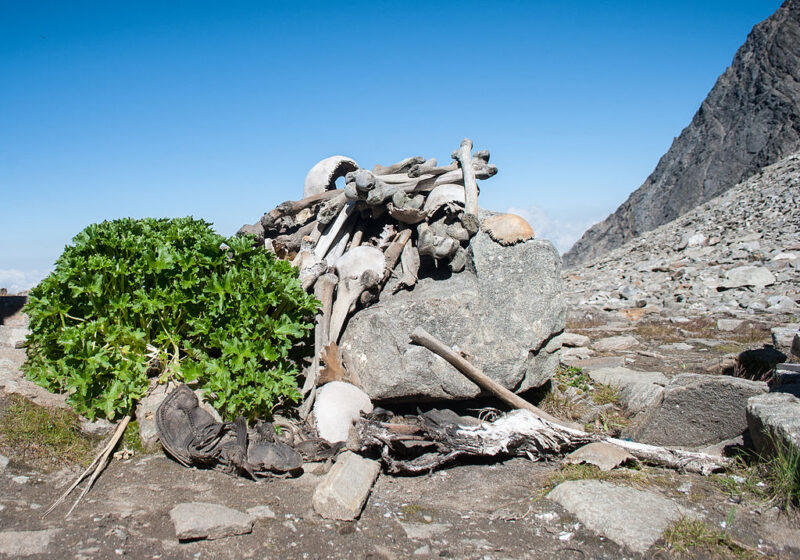
Every Halloween I do a blog post on some aspect of the supernatural, from the ghost ship Baltimore in Atlantic Canada, to the folklore of Japan. This year, I want to cover the ghosts’ of India. I’ll start with Victorian ghost stories, before moving into some more ancient mysteries of the region. On the one hand, Rudyard Kipling (the famous apologist for empire) loved ghost stories, and had a host of them set in India. So British ghost stories set in India (or shaped by memories of India) are inherently colonial. On the other hand, Indian stories had a global impact, and these tales circulated from Australia to Canada. So it’s interesting to reflect on how people across the world came to imagine India through this lens.
There are a few common themes in these British ghost stories. One of the most common is the sense of loss, as people are separated from their lovers or their families because they’ve traveled to India. This was the case, for example, in Mary Louisa Morgan’s “The Story of the Rippling Train,” in which a woman’s spirit returns to say goodbye to a man who pined for her, but never acted before her marriage.
Kipling’s stories have another approach. Many of these stories read as boy’s adventure tales, but some have a darker touch. For example, “At the End of the Passage,” describes a group of four English men who have come together to socialize at a remote stop on an Indian railway line. Each man tells his colleagues of his work, and the immense suffering that they have endured. Kipling uses their histories to undermine critiques of imperialism. The men who implement the empire pay a terrible price for their work. The piece is brilliantly written. I find myself trying to determine which -or perhaps all- of the men were suffering from culture shock. At the same time, it captures the paternalism, condescension and exoticism that shaped British views of Indians. The British are foregrounded in the story, so that the Indian characters become a backdrop. But the narrative remains disturbing. Whatever you do, don’t fall asleep. And above all, don’t dream.
It is astounding how many Victorian British ghost stories are set in India. B.M Croker’s short story “To Let,” begins with: “Some years ago, when I was a slim young spin, I came out to India to live with my brother Tom.” When the Indian heat affected this British family they decided to move to the hills, where there was only one place for rent- at a suspiciously cheap rate. One has a sense of their lifestyle by the fact that they brought a piano on the trip. And when the trouble began they were worried about losing their servants.
Of course the richest stories of ghosts and spirits in India long preceded the British. I am fascinated by military architecture, and have long wanted to travel to see India’s forts. One of these is supposedly the most haunted site in India. Bhangarh fort (in Alwar district, Rajasthan) was built in the 16th century, but supposedly was abandoned overnight after a yogi (or in other accounts a magician) put a curse on it. I would love to see a carefully researched article on the site- but I haven’t been able to find one. The only articles that I’ve been able to come across (Shetty) talk about “dark tourism” in India.
I think that perhaps the most mysterious place in India is Skeleton Lake, which -as the name suggests- has perhaps hundreds of skeletons around and in the lake. This is no myth, even though it rather reminds me of the dead bodies found in the swamps outside Tolkien’s Mordor. In fact, it’s something of a scientific mystery. There is a wonderful podcast called Unexplainable, which covers this story in one episode. In 1942 an Indian forest ranger found this remote lake in Northern India which was surrounded by an immense number of bones. In the 1950s carbon dating found that the bodies were from perhaps the 8th to 9th centuries. Were these pilgrims caught in a hail storm -after the presence of dancers angered the gods- as described in legendary accounts in the region? Then scientists analyzed the DNA of the skeletons, and the story became even stranger. There were three different groups of people genetically represented in these bones. And for one of these groups the best genetic match was Crete in the Mediterranean. And the bones from this group dated to around 1800. No good historical explanation exists for this fact.
As one of humanity’s foundational civilizations, many of India’s mysteries are even more ancient than that of Skeleton Lake. I love Danino’s The Lost River, which tells the story of a vanished river that was mentioned in ancient texts, in particular the Rig Veda and the Mahabharata. But what happened to this river? Surely an entire river can’t disappear? So was this river a myth? Be warned that this book goes into exhaustive detail about topics such as regional geology and British scientists. If you love archaeology or history, this is a wonderful book, but it does not make a light read. But if you’re looking for a mystery that puzzles scholars, this might be the work for you.
Curious for more spooky or mysterious stories? Learn about the mysteries of North America’s Great Lakes, the strange stories of French Canada, the ghosts of the Middle East, and haunted China with these blog posts.
If you are in Canada or the United States, and you are taking young children trick or treating, please remember to give your kids glow sticks or something reflective. Happy Halloween everyone.
References:
BBC. “The Secrets of India’s Haunted Fort.” Accessed October 12, 2022. https://www.bbc.com/reel/video/p0d3s2bf/the-secrets-of-india-s-haunted-fort.
Danino, M. (2010). The lost river : on the trail of the Sarasvatī. Penguin Books India.
Shetty, P. (2020). Dark tourism in india. https://tinyurl.com/465e5vyy
